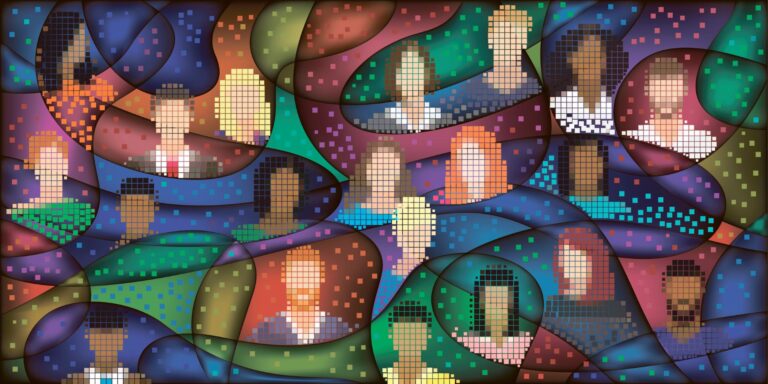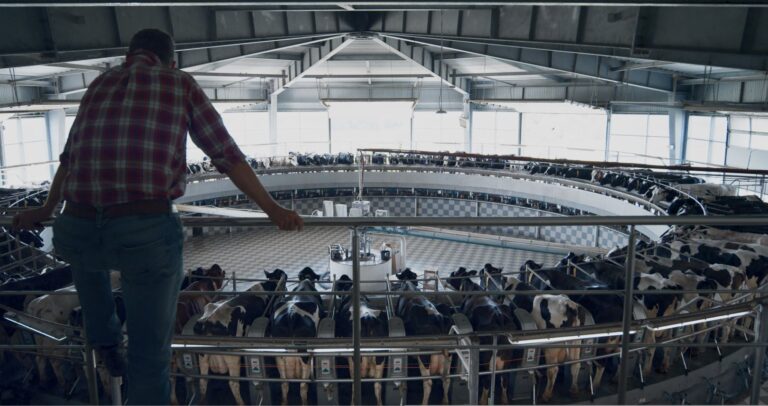My first job after finishing university, involved editing videos and developing a database of potential funders for an arts organization. Today much of that work would be automated. In the coming years, there is no doubt that my critical first job once I finished post-secondary will be done almost entirely by artificial intelligence.
As young Canadians face the worst job market in more than a decade, there is something more going on than a bad economy. AI is increasingly doing the jobs that young people rely on to begin their careers.
While it is still early days when it comes to definitive evidence of how AI will affect entry-level work, a picture is emerging that suggests young people are in for a rough ride in the short to medium term as AI adoption becomes more prevalent.
A recent report from CIBC suggests that people aged 25 and under are more likely to work in areas that are at high risk of being replaced by AI advancements. Others see recent layoffs in the tech sector as a sign of what is to come, as more industries begin adopting AI at scale. In fact, 39 per cent of business leaders across seven countries said they have already reduced or cut entry-level roles by using AI tools to carry out tasks.
Will artificial intelligence lead to more unfairness?
Youth unemployment isn’t just a summer problem
Preparing adult workers for the artificial intelligence revolution
Technological advancement always impacts jobs. Obsolete roles disappear as new ones emerge. Lamplighters, switchboard operators and video-store employees have given way to infrastructure managers, IT specialists and content curators. It takes time, but for the most part we find ways to adapt.
But in times of rapid technological change — like AI adoption promises to be — there is often a period where workers, especially young workers, struggle to adjust to the new reality.
In this era of AI disruption, young people don’t need to learn more; rather they need to gain real-world experience – and fast. That means education must be reimagined, businesses need to find new ways to engage young talent and governments need to facilitate all of this with transitional support.
If we don’t shift our understandings of entry-level roles from being focused on rote tasks to being meaningful opportunities for contribution, we will be dooming young workers to obsolesce over and over again.
Lessons from the 1800s
To understand the impact that AI might have in the future, let’s look at the past.
In the 18th and 19th centuries, the Industrial Revolution saw many rural families move to cities to find work in factories. To begin with, children and young people worked alongside their parents. However as technology advanced, companies began to cut back on child labour, which was a good thing, of course.
But it meant young people often had little to do while their parents went to work. They became disillusioned and disconnected from their communities. Youth gangs began to form and crimes by young people increased significantly. By the mid-1800s, juvenile delinquency had become a social problem on a mass scale for the first time in human history.
The primary solution to this new social problem was mandatory schooling. In Canada, Ontario introduced mandatory attendance in 1871. By 1910, most provinces had, too.
As the French historian Pierre Caspard discusses, this led to a shift in our understanding of what the role of young people in society was. “The time of youth is short,” he explained. The best use of it “is not to do directly productive work, but to learn in order to reap later, with interest, the fruits of (this) study.” With the advent of mandatory schooling rather than youth being a time of economic productivity as it had historically been, it became a time that focused on learning and what young people would contribute in a far-off future.
Education did address the Industrial-Revolution-era problem it intended to fix. But contemporary research tells us that when young people are disconnected from economic productivity for extended periods, the outcomes are just as negative today as they were back then. The young and unemployed are at higher risk of social disconnection. They are more likely to commit a crime or become homeless and they are more likely to suffer from mental-health challenges and long-term financial instability.
Education has had positive outcomes for young people through the centuries since the Industrial Revolution. But as with most social innovations, solutions to a past social ills eventually end up causing new problems. In this case, more education might actually lead young people to be more likely to be economically unproductive for extended periods.
In the age of AI, holding an advanced degree is becoming a risk. Those with advanced degrees are more likely to see their occupations disrupted, a LinkedIn report suggests.
As AI adoption becomes widespread, more education isn’t the solution; rather young people will need more experience if we hope to avoid a social crisis amongst young people like we saw during the Industrial Revolution.
Re-thinking school, rethinking jobs
We know that entry-level jobs are declining and AI is less likely to disrupt senior-level roles, so to thrive in an era of AI, young people will need to gain the necessary experience for more senior positions much more quickly than they do now.
How can we support them to do this?
First, we need to re-imagine what education looks like. Theory is important, but young people need to finish post-secondary education with real-world experience. An overemphasis on learning, reskilling or retraining is not what is needed in the AI era. We need to balance learning with ensuring young people gain the context and experience that less-impacted senior roles rely on.
The University of Waterloo has long been a leader in work-integrated learning, but we still have big questions to address. What will work-integrated learning look like as automation takes over the repetitive tasks that young people typically do as part of co-op placements and internships?
Secondly, employers who hope to maintain a talent pipeline so they can fill more senior roles down the road will need to continue hiring and supporting young people. But entry-level jobs need to change.
At the University of Waterloo, our research shows that young people’s brains are wired to make them bold problem solvers.
Entry-level jobs need to move away from rote tasks. They need to include higher-level activities that tap into the value that young workers uniquely offer. Employers need to trust young workers sooner with consequential tasks. They need to mentor and support them so they can step into more senior roles sooner.
Lastly, government will need to step in and support higher education, business and — most importantly — young people through this transition.
Canada has one of the most highly educated populations in the world and today’s young people are the most educated generation in Canadian history. This generation of young people doesn’t need more skills, they need opportunities to gain experience.
Government will need to fund work-integrated learning at scale starting in high school and through post-secondary, ensuring that educational institutions balance learning and real-world experience rather than overemphasising more traditional learning, reskilling or retraining. Government will also need to subsidize employers to ensure they continue to hire workers who would have traditionally filled entry-level roles.
Federal initiatives like Canada Summer Jobs work to prevent long-term economic scarring amongst young people. In the age of AI, however, such programs must require businesses and nonprofits not to just hire young people but also to re-imagine entry-level jobs as well as talent pipelines within organizations.
The high youth unemployment we are seeing now may be just the beginning of a persistent crisis as we experience more widespread AI adoption. If we hope to see our young people and our communities thrive through this transition, we need to heed the lessons of the Industrial Revolution: When young people are unemployed for extended periods of time, it has significant consequences both for them and their communities.
This is a social crisis that we can and must avoid. Supporting young people to gain real-world experience and valuing and trusting them to meaningfully contribute while they are young will be the only way to ensure they thrive in the era of AI disruption.












